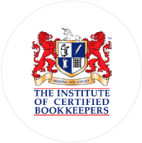
Leasing equipment may be better if you have limited capital, or if you’re buying something that needs to be upgraded every few years. Buying equipment may be better if you have more capital or if you’re buying an item that has a long usable life.
Here are some pros and cons for both options:
However leasing equipment will usually cost you more over the long run and you’ll be obligated to pay the lease over a fixed term, which is less flexible than buying. When you buy equipment, you gain ownership of it for as long as you own it. However, with leasing you use it for the term of the lease and then return it.
When you own equipment you can depreciate its value over its usable lifetime. These caps and allowances can be charged against your tax. However, buying may require a large amount of capital. This can tie up cash, or if you borrow it, can tie up lines of credit. And if you have your own equipment and it becomes out of date, it may have very little retail value.
When you’re looking to lease or buy, work out the total cost of purchase for both options and the expected lifetime of the item you’re looking to buy.
To get more information about this, please contact us using the details shown on screen.

Clear Books, accredited by The Institute of Certified Bookkeepers and registered with the Financial Conduct Authority (reg. no. 843585), delivers valued, comprehensive online accounting software for small businesses in the UK.